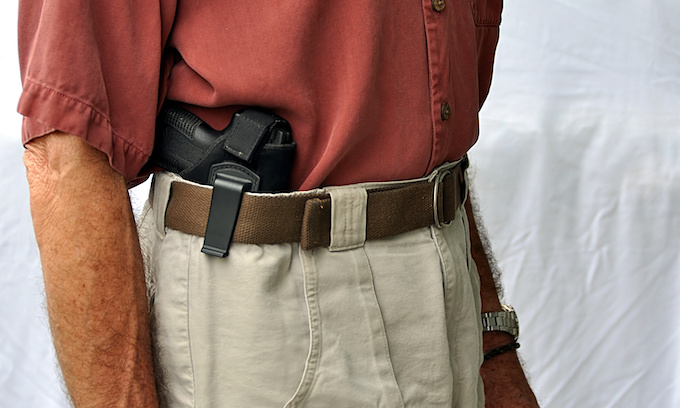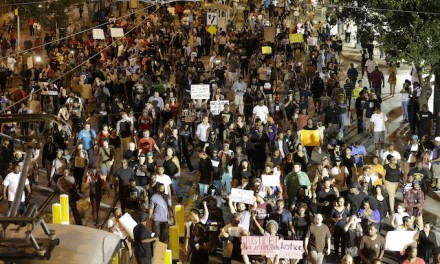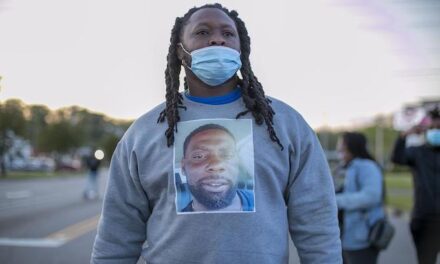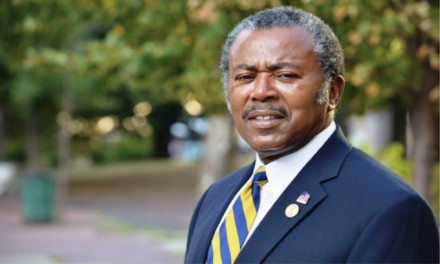California lawmakers failed early Thursday to push through a set of rules shoring up the state’s concealed carry gun laws following a Supreme Court decision that weakened permitting restrictions.
The bill from Sen. Anthony Portantino, D-Burbank, would have created a new permitting process for people who want to carry guns in public. The U.S. Supreme Court in June struck down California’s restrictive concealed carry law, prompting a scramble to rewrite the rules.
As an urgency measure, Senate Bill 918 required 54 votes in the Assembly, rather than the usual 41. It fell two votes short on Tuesday night, and Portantino promised to push for reconsideration.
Attorney General Rob Bonta spent hours Wednesday whipping votes on the Assembly floor. But the bill failed 52-23.
Portantino said Gov. Gavin Newsom was also lobbying lawmakers on Wednesday, as well as gun control advocates.
“It was all hands on deck,” he said. “The advocates, everybody was pressing the case. I mean, we need to conform with the Supreme Court decision. We have to do that. And by having every county just have their own system going forward, it’s just not an acceptable outcome.”
California concealed carry
The New York State Rifle & Pistol Association v. Bruen decision invalidated “may carry” laws in eight states that required concealed carry applicants to show a specific need to carry a gun in public and demonstrate they will handle it responsibly.
Under California’s previous law, residents who wanted a concealed carry permit had to show “good cause.”
The Supreme Court decision does allow less restrictive “shall carry” permitting, as well as some limits on spaces where people can bring guns.
Portantino, Bonta and Newsom, along with other lawmakers, wanted to rewrite California’s laws to make them as strong as the new legal precedent will allow.
New concealed carry rules
SB 918 had been in the works for months as a spot bill, or placeholder, in anticipation of the Supreme Court decision.
The bill would require a concealed carry permit holder to be a “qualified person” age 21 or older who has received at least 16 hours of training, according to the Assembly floor analysis.
Permit applications would include criminal background information, whether the applicant has previously been denied a permit or had one revoked and three character references.
Concealed carry permit holders could have their licenses revoked for various reasons, such as being are a danger to themselves or others, having restraining or protective orders against them, or abusing alcohol or drugs.
The bill would also restrict where holders can carry firearms. Prohibited sites would include schools, courts, government buildings, prisons, hospitals, airports, sports arenas, churches, libraries and businesses where alcohol is served.
Guns would also be banned from privately-owned businesses, unless they have signs indicating customers can carry firearms.
Bonta lobbies for concealed carry bill
Ahead of the vote, Bonta roamed the Capitol halls and paid visits to both the Assembly and the Senate. He told The Sacramento Bee he had been planning to visit his old colleagues from his time in the Assembly, some of whom will not be returning next session.
But with SB 918 on the ropes, Bonta ended up doing some lobbying, as well. He spoke with Assemblymembers right up until the vote early Thursday morning, taking some out onto the private members’ balcony for conversations.
“SB 918 is a bill we care deeply about,” he said. “We think it will make Californians safer.”
Bonta said his discussions with lawmakers had included questions about the Supreme Court decision, the list of public places where guns would be banned and what would happen if aspects of the bill are legally struck down.
“We’ll regroup and assess and see what the different options are,” Bonta said when asked what he planned to do if the bill failed.
Portantino said he planned to reintroduce the bill the “first Monday in December,” as soon as the new legislative session starts.
“I think it means that California is less safe today and going forward,” Portantino said of California’s situation in the interim. “It was an urgency bill. So it would have gone into effect the moment the governor signed it. The Attorney General was ready to implement it. And this means California will continue to have a system that’s not uniform and and, you know, I’m troubled by the outcome.”
©2022 The Sacramento Bee. Visit sacbee.com. Distributed by Tribune Content Agency, LLC.
—-
This content is published through a licensing agreement with Acquire Media using its NewsEdge technology.



















“SB 918 is a bill we care deeply about,” he said. “We think it will make Californians safer.”
In the Last 10 years how many crimes were committed by people with a state’s concealed gun permit??
In the Last 10 years how many crimes were committed by people with out a state’s concealed gun permit??
So the Democrat Party reign thinks that restricting law abiding citizens to carry a concealed weapon will make the safer, while the criminals are free to carry concealed gun.
Is one a Democrat because they are a fool or are they a fool because they are a Democrat?
TELL that to all the folk who died in GUN FREE ZONES bub.